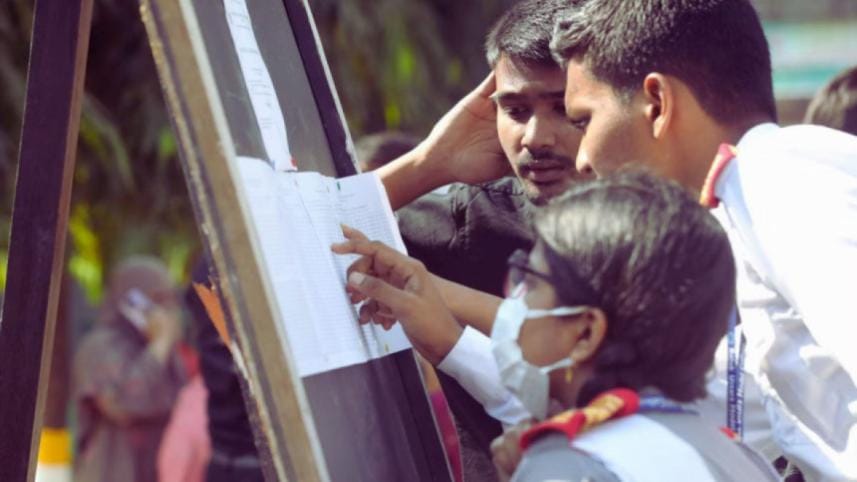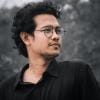This year’s HSC examinees have tough times ahead

Some experts feel that students who passed this year's Higher Secondary Certificate (HSC) and equivalent exams are entering higher education with a significant learning gap after exemption from nearly half of their tests.
Moreover, the results of the cancelled exams were based on their Secondary School Certificate (SSC) test results, which had been held on abridged syllabi because of the Covid-19 pandemic, the experts pointed out.
They warned that such "unprecedented compromise" left these students with weak academic foundations, posing serious risks to their future career prospects.
The HSC exams this year, which began on June 30, were initially scheduled to conclude on August 21. Only three tests were held in Sylhet because of floods.
As the quota reform protests intensified and turned deadly in July, the previous government postponed the tests altogether on July 16 after seven tests had been held.
Following the fall of the Sheikh Hasina government on August 5, the interim government rescheduled the remaining exams for September 11. However, on August 20, a group of HSC candidates broke into the Secretariat building in Dhaka and locked the gates, demanding the cancellation of the remaining exams.
As a result, the remaining of this year's HSC tests were cancelled and the results of these exams were determined through subject mapping on the basis of the students' performance in SSC.
These students were required to take the exams on only seven subjects, while the exam duration was reduced to two hours instead of three as the syllabi were abridged.
This means that these students are entering higher education without a thorough evaluation process after effectively bypassing major public examinations.
Education experts said that while adjustments during the pandemic were necessary, cancelling the postponed HSC exams this year was not the right decision, especially since alternative options were available.
Speaking to this newspaper, Professor Mohammad Mojibur Rahman of Dhaka University's Institute of Education and Research said, "It's true that the protesting students experienced trauma and were not ready for exams.
"But for that, the government could have allowed colleges to assess how many of their students were affected by the protests and arranged exams for them accordingly. Instead, the decision was taken like an administrative order, without consulting experts, which set a bad precedent."
Prof Mojibur warned that these students might face challenges during university admission, as the shortened SSC syllabi and cancelled HSC exams left them unprepared for tests requiring comprehensive preparation.
There are also concerns that foreign universities may not recognise these results, potentially impacting students seeking higher education abroad.
"These students have already fallen into a learning gap. By cancelling the exams abruptly, we've put them in a difficult situation," Prof Mojibur said.
He called for urgent attention to the education sector and the formation of a high-powered commission including educators, experts, and other stakeholders to ensure better decision-making.
Contacted, Rasheda K Choudhury, educationist and executive director of the Campaign for Popular Education (CAMPE), shared similar concerns.
The way these students were promoted in SSC, and now in HSC using a compromised formula, is unlikely to benefit their future, she said.
Rasheda criticised the cancellation of exams for around 14 lakh students in response to a small group's demand. Many students who hoped to improve their performance through the HSC exams have been unfairly disadvantaged, she said.
She believes students could face learning losses while seeking education in specialised fields like medical or engineering studies. Even those preparing for Bangladesh Civil Service and other competitive exams might struggle because of this gap.
Rasheda expressed disappointment at the government's handling of the education sector. "The education sector is foundational, but we don't know why the government has deprioritised this sector.
"We are deeply concerned as no discussions have been held with the stakeholders, and we are doubtful about the education budget for the next fiscal year."
Prof Tapan Kumar Sarkar, head of the Inter-Education Board Coordination Committee, recently said that the students who passed HSC this year did not face learning gaps.
"They had taken the necessary exam preparations, but certain circumstances prevented them from sitting for the tests. It would not impact their foundation," he said.
Prof Tapan, also chairman of Dhaka education board, said that while the results were determined through subject mapping, this method would not be mentioned on their transcripts to ensure that foreign universities accept their certificates.
The government on October 15 published the results of this year's HSC and equivalent exams. The passing rate was 77.78 percent while a total of 1,45,911 students achieved GPA-5.




 For all latest news, follow The Daily Star's Google News channel.
For all latest news, follow The Daily Star's Google News channel.
Comments